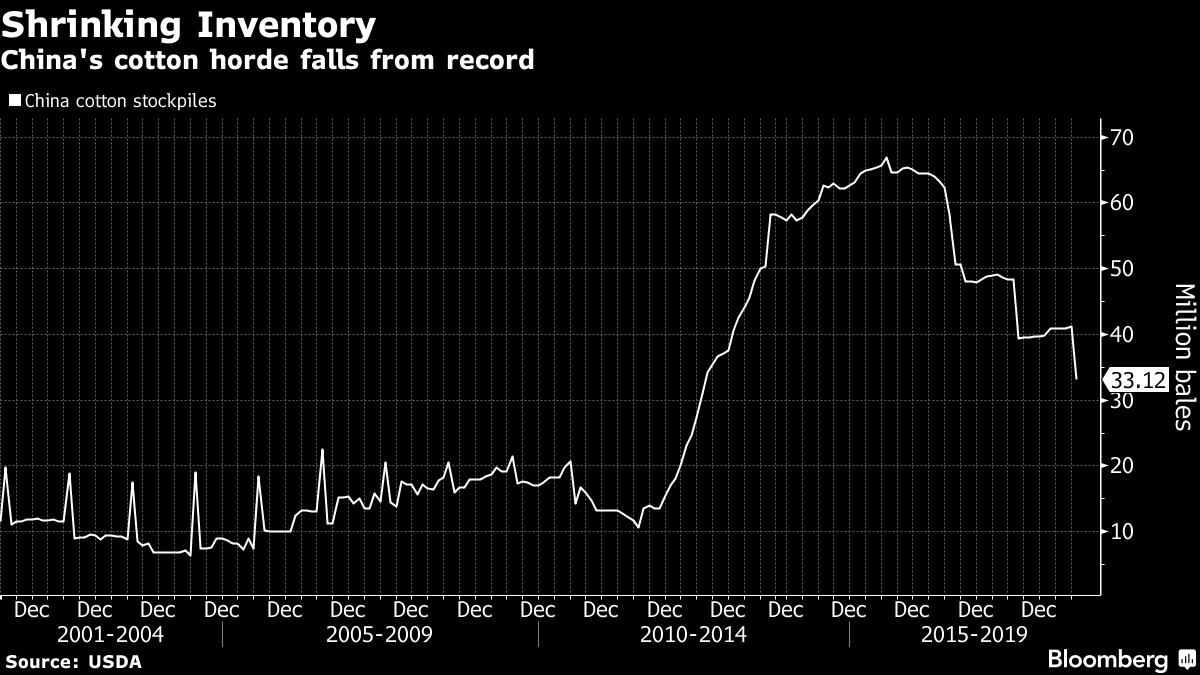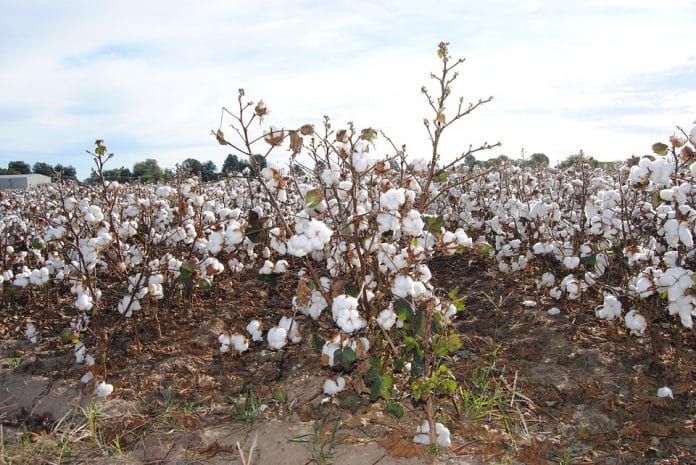The weak rupee is seen making India’s exports more appealing and freight costs to China can be relatively cheap.
In the global cotton market, India stands to be a winner amid escalating trade tensions between the US, the world’s top exporter, and China, the biggest buyer.
The weak rupee makes India’s exports more appealing, and freight costs to the neighboring Asian country can be relatively cheap, Keith Brown, the president of Keith Brown & Co., a brokerage in Moultrie, Georgia, said in a telephone interview. “It’s a question of price and proximity,” he said.

“China will still get cotton from the US” possibly indirectly, he said. Mills may obtain some cargoes via Vietnam, or buy American supplies including a tariff, he said.
Cotton Tuesday tumbled by the exchange limit on ICE Futures US in New York and has slumped 12 percent from a four-year high of 94.82 cents a pound on 6 June. China has bought almost 1.5 million bales from the US this season, “and traders are now concerned about cancellation of those sales,” Louis Rose, director of research and analysis at Rose Commodity Group in Memphis, Tennessee, said in a report. A bale weighs 480 pounds, or 218 kilograms.
The Cotton Association of India said last week that output this season will rise 8.3 per cent from a year earlier, boosting exports. China’s inventories have dwindled from a record in 2015 amid a decline in acreage. The government plans to issue additional import quotas because adverse weather damaged the domestic crop, and a shortfall of high-quality fiber looms.
In the US, cotton futures rose as much as 21 per cent this year as a drought eroded crop prospects in West Texas, the top producing region.
“We went up way too fast, and now we are coming down way too fast,” Brown said.
Futures for December delivery fell 3.95 cents, or 4.5 percent, to close at 83.82 cents a pound Tuesday after tumbling by the limit of 4 cents.- Bloomberg






